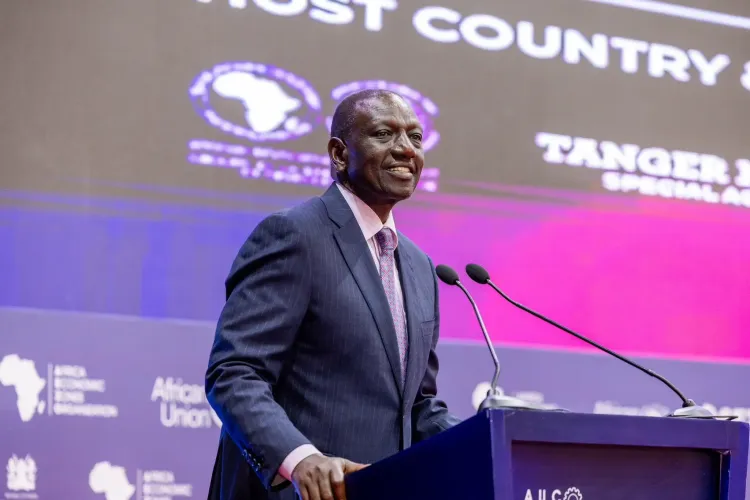Kenya Secures Investment to Combat Climate Change Issues

Synopsis
Key Takeaways
- Kenya secures $50 million from the GCF.
- Focus on climate resilience and sustainable development.
- Transformation of agricultural value chains in Lake Region.
- Over 143,000 farmers to receive training.
- Commitment from the Kenyan government to tackle climate change.
Nairobi, Feb 18 (NationPress) The Green Climate Fund (GCF), supported by the United Nations (UN), has sanctioned 50 million US dollars for essential initiatives aimed at enhancing climate resilience and fostering sustainable development in Kenya.
This program, spearheaded by the Food and Agriculture Organization of the UN (FAO), signifies a substantial commitment to assist at-risk communities in adapting to climate change, improving their livelihoods, and curbing greenhouse gas emissions, as stated by the FAO on Tuesday.
The project is set to revolutionize agricultural value chains within the Lake Region Economic Bloc, a cooperative economic entity in western Kenya, benefiting 2.7 million individuals, of whom approximately half are women, according to the FAO.
This region, which is densely populated, heavily relies on agriculture; however, climate change repercussions like rising temperatures, erratic rainfall, and recurrent flooding jeopardize its food security and the livelihoods of its inhabitants.
John Mbadi, the Cabinet Secretary for Kenya's National Treasury and Economic Planning, reaffirmed the government's resolve to tackle the impacts of climate change and execute ambitious policies to fulfill its Nationally Determined Contribution targets as outlined in the Bottom-Up Economic Transformation Agenda.
"The government highly values the essential support from FAO Kenya in enhancing climate resilience in the agricultural sector through this GCF initiative and commits its full backing for its execution," Mbadi stated, as reported by Xinhua news agency.
This initiative aims to promote climate-resilient and low-carbon methodologies across six principal value chains: dairy, poultry, coffee, tea, fruit trees, and African leafy vegetables. The FAO noted that over 143,000 farmers will be trained and supported to embrace climate-smart technologies, enhancing their adaptability to climate change and increasing household incomes.
Kaveh Zahedi, Director of the FAO Office of Climate Change, Biodiversity, and Environment, indicated that this funding emphasizes FAO's robust partnership with the GCF and its pivotal role in broadening access to climate finance.
"By working together, we can further elevate solutions that transform agri-food systems while achieving global climate adaptation and mitigation objectives," Zahedi added.









